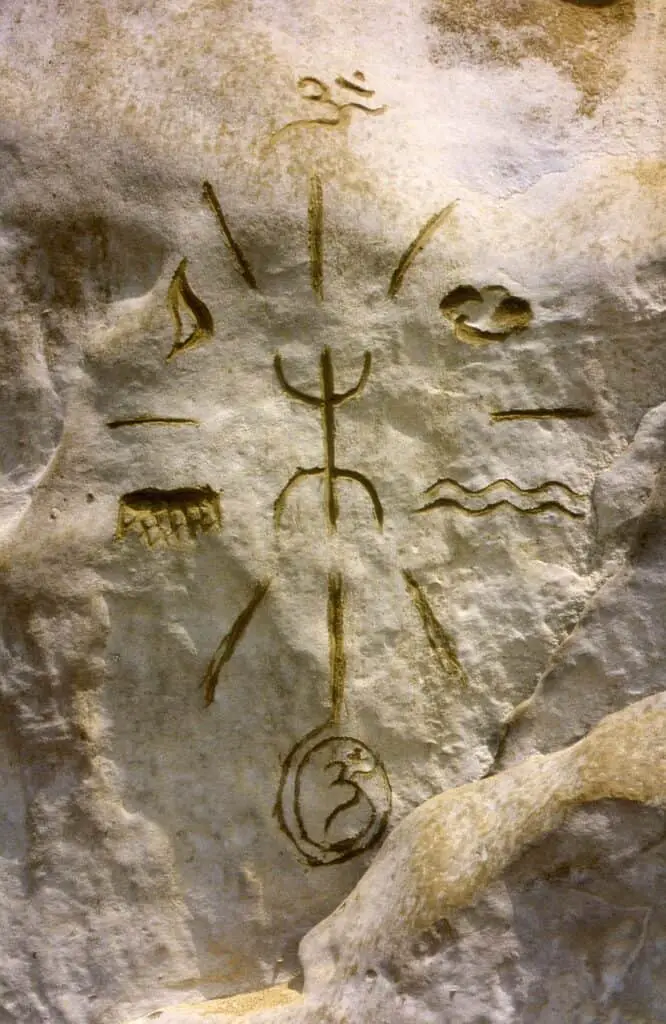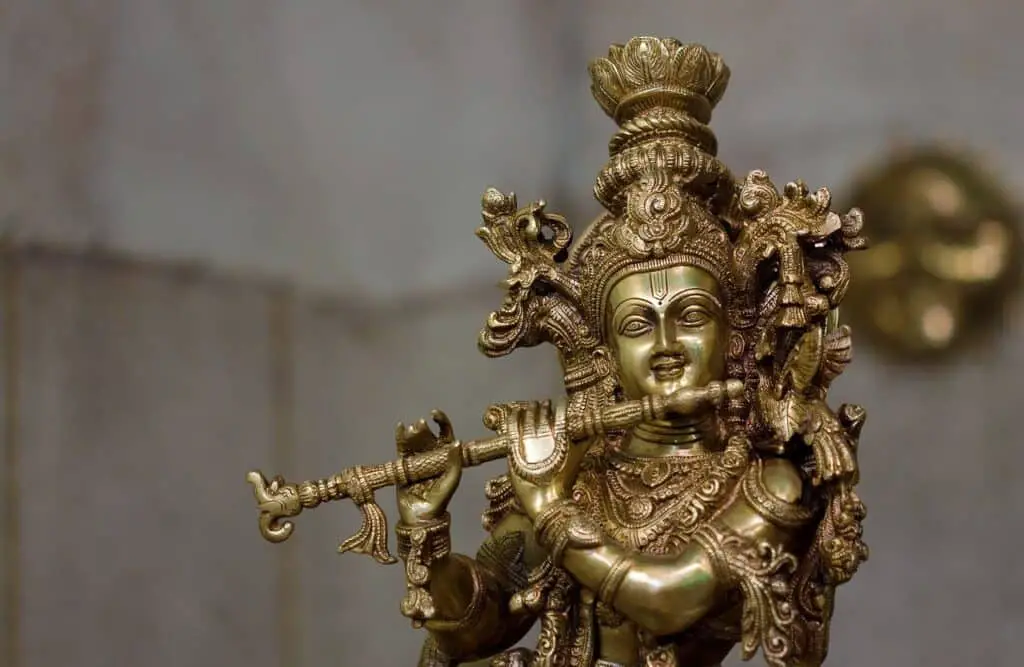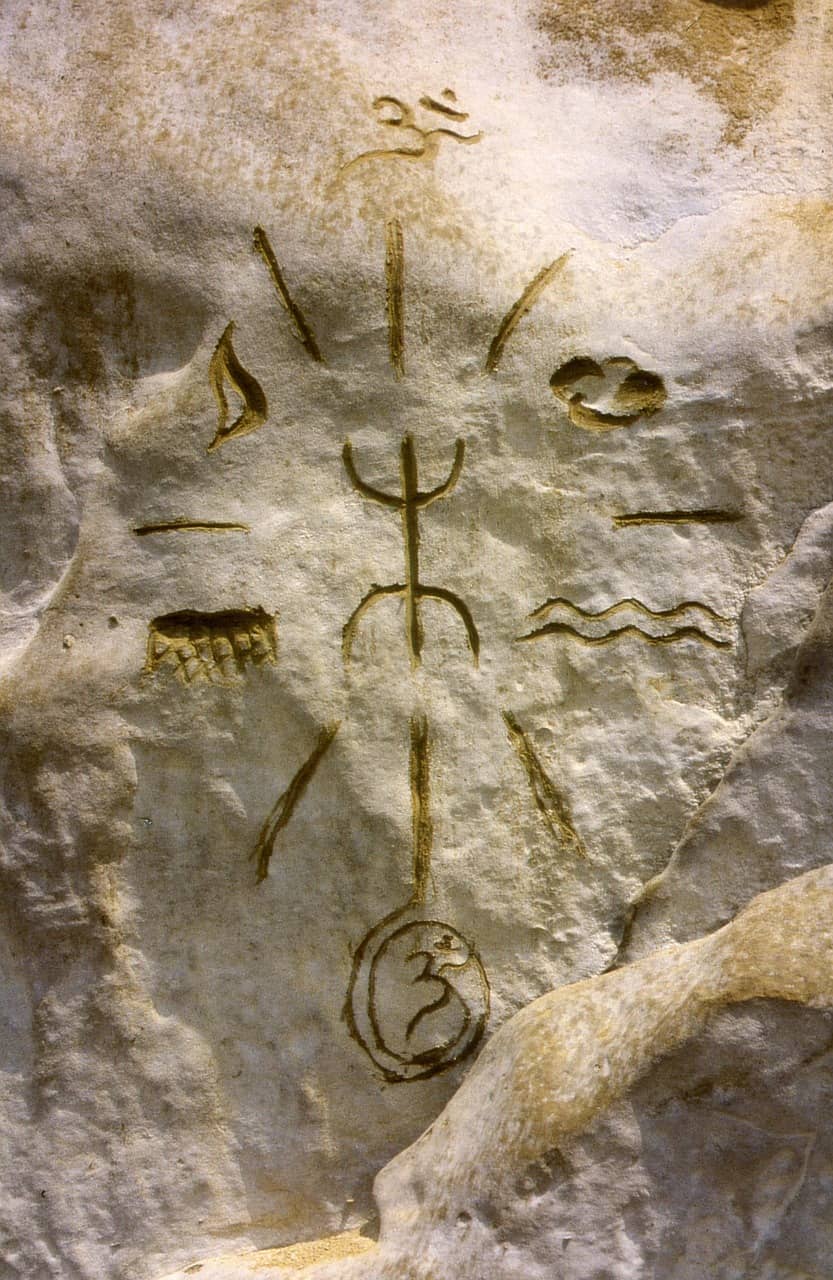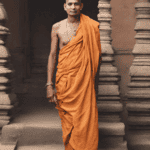The tale of the hero Barbarika who could complete Mahabharata in 30 seconds is untold. You may have known about Arjun, Bhishma, and other solid, bold characters from the Mahabharata. Before the Mahabharata started, Lord Krishna asked every one of the champions what amount of time they would require to complete the Mahabharata war.
How this was revealed
Bhishma addressed that he would require 20 days to complete the conflict. Dronacharya answered that it would take him 25 days. Karna said he would require 24 days. Arjuna disclosed to Krishna it would require 28 days for him to finish the fight without anyone else. As such, Lord Krishna asked every hero and got an answer. However, did you know, there was a hero who could complete the fight in only 30 seconds? So for what reason didn’t that occur? Peruse further to discover!

In the Skanda Purana, Barbarika was the offspring of Ghatotkacha and Maurvi (the young lady of Daitya Moor, a Yadava ruler). The neighborhood of Kathmandu Valley alludes to him as Akash Bhairav. In Gujarat, he is cherished as Baliyadev. At the point when the battle between the Pandavas and the Kauravas had turned unpredictable, he needed to notice the Mahabharata War.
He guaranteed his mom that if he needed to in the battle, he would join the side which would lose. He rode to the field on his Blue pony equipped with his three bolts and a bow.
Conveyor of Three Arrows
Barbarika was the grandson of Bhima and the offspring of Ghatotkacha. Ghatotkacha was the offspring of Bhima and Hidimba. Since his childhood, Barbarika was a trying fighter. He took in the pith of battling from his mom. The heavenly creatures (Ashtadeva) gave him the three reliable bolts. In this way, Barbarika came to be known as “High schooler Baan Dhari” or “Conveyor of Three Arrows”.
Barbarika’s entrance in Mahabharata
Krishna, covered as a Brahmin, stopped Barbarika to take a gander at his solidarity. At the point when asked what amount of time he would require to finish the conflict, Barbarika said he could finish it in 30 seconds. Krishna then asked Barbarika how he’d total the unbelievable battle with just three bolts.
He communicated that the primary bolt is to stamp all of the things that he should be obliterated. At the point when he uses the subsequent bolt, it will check all of the things that he needs to save.
The third bolt will annihilate everything not set apart continuously and afterward get back to the quiver. Toward the day’s end, with one bolt he can fix all of his goals and with the other, he can obliterate them.
Krishna’s test
Krishna then incited him to tie all of the leaves of the Peepal tree under which he was standing, using his bolts. Barbarika recognized the test and started reflecting to release his bolt by closing his eyes.
As Barbarika started suspecting, Krishna cautiously cut a leaf from the tree and concealed it under his foot. At the point when Barbarika released his first bolt, it indicated all of the leaves of the tree and in conclusion started floating around the leg of Krishna. Krishna asked Barbarika for what substantial explanation the bolt was floating over his foot. Barbarika said there should be a leaf under his foot and the bolt was zeroing in on his foot to stamp the leaf under.

Barbarika urged Krishna to lift his leg or the bolt would check the leaf by penetrating Krishna’s foot. Krishna, by then, lifted his foot and the primary bolt furthermore meant the covered leaf. The third bolt by then accumulated all of the leaves (tallying the disguised leaf ) and coordinated them. By this, Krishna came to realize that the bolts were astounding and reliable. Whether or not Barbarika knew about the whereabouts of the objective, his bolts could investigate them.
Barbarika disclosure
Krishna by then asked who he would uphold in the conflict. Barbarika revealed that he expected to fight for the feeble side. The Pandavas had only seven military contrasts with the eleven of the Kauravas.
Hence he expected to help the Pandavas. Krishna inquired as to whether he had given an idea to the results before giving such a word to his mom (about supporting the more frail side).
Barbarika anticipated that his assistance, to the by and large more delicate Pandava side, would make them effective. Regardless, Krishna uncovered the certifiable result of his guarantee to his mom:
The consequences of his promise
Krishna told that whichever side he upheld would wrap up making the contrary side more grounded as a result of his ability. Nobody would have the option to crush him. Eventually, he would be compelled to change sides to help the contrary side. The one that had ended up being more vulnerable (given his guarantee to his mom).
Thus, in a real conflict, he would keep faltering between various sides, subsequently devastating the entire furnished power of the different sides and over the long haul, just he would remain.
In this manner, none of the sides would wind up victorious and he would be the single survivor. Hence, Krishna sidestepped his help in the conflict by requesting his head in charity.
Parting with his head in philanthropy
Krishna uncovered that before a battle, the boldest Kshatriya should be forfeited to favor the combat area. Krishna said that he believed Barbarika to be the most fearless among Kshatriyas, and was thus mentioning his head in magnanimity.
In fulfillment of his assurance, and inconsistency with Krishna’s bearing, Barbarika gave his head to him in charity.
Before executing himself, Barbarika communicated to Krishna his unbelievable desire to see the forthcoming battle and referenced him to support something similar. Krishna agreed and put his head over a slant sitting over the battle zone. From the slant, the head of Barbarika saw the entire battle.
End of the Mahabharata
Towards the completion of the battle, the victorious Pandava king fought among themselves concerning who was accountable for the victory. Krishna recommended that Barbarika’s head, which had seen the whole battle, be condemned.
Barbarika’s head suggested that it was Krishna alone who was responsible for the victory. Barbarika replied, “All that I could see was two things. One, an ideal chakra turning all around the cutting edge, executing all of the people who were not for Dharma. Barbarika’s head suggested that it was Krishna alone who was responsible for the victory. Barbarika replied, “All that I could see was two things. One, an ideal chakra turning all around the bleeding edge, executing all of the people who were not for Dharma.
The difference was the Draupadi who has taken her novel sort of Goddess Mahakali, who spread out her tongue on the bleeding edge and ate up all of the lowlifes as her compensation”. Pandavas comprehended that it was Master Narayana and Goddess Parvati (Mahakali) who truly cleaned up the world from Adharma, and the Pandavas were only the methods.

